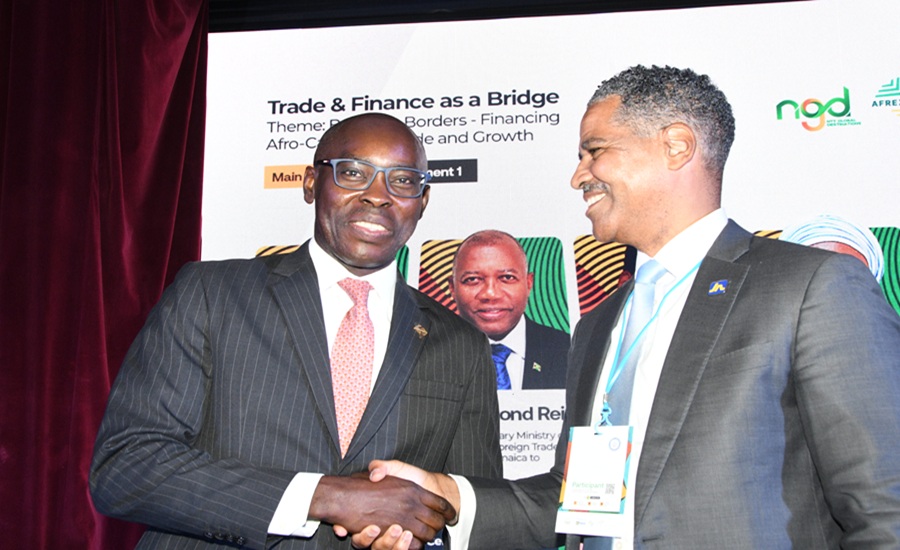There has been a shockwave across Africa since the United States President Donald Trump dramatically cut off USAID funding, especially in sectors like health, education, food security, and humanitarian relief. However, former President Olusegun Obasanjo has faulted African leaders for their thirst and hunger for development aid from the West. Obasanjo spoke recently during a panel session at the Afreximbank Annual Meeting with the theme “African Renaissance in an Era of Turbulence: Are the Lions Still on the Move?”
The former president asked rhetorically: “We have lived too long on aid. Is aid the way that Africa should be expecting? I don’t believe so. Now, if that is the case, what should we substitute for aid? “We run to Japan. We run to China. And all the African leaders run to China. For how much? China will give up to $20bn… which a country in Africa can produce… and more.” Obasanjo’s perspective on development aid tends to align with his current crusade about leadership in Africa; a crusade under which he has repeatedly described ‘democracy’ as un-African and advocated for what he described as Communalism that prioritises argument and concession instead of opposition politics, which breeds ‘winner-takes-all’ syndrome and bottomless corruption.
Though Obasanjo’s observation that democracy has failed Africa is debatable, his swipe against African governments’ yearning for development aid receives this newspaper’s support. In 2023, Africa received less than $20 billion from the US and less than $60 billion from all the donor countries of Europe. The total aid from the West is far less than Africa’s $610 billion in export earnings to rich countries, much of which is not repatriated to Africa but remains in the West to lubricate the European economy. The aid, a fraction of African funds held in the West, literally prevents African leaders from engaging in strategic decisions about health, education, agriculture, environmental, and several other social sectors on the continent. Now that the US has led the way in withdrawing the so-called development support funds, Africa must come up with homegrown measures to take care of its people.
Perhaps, the first step to conserving funds to take care of the needs of the continent is by cutting illicit financial flows (IFFs) from Africa to other parts of the world. According to the Economic Community of West African States (ECOWAS), an estimated $88.6 billion is illegally moved across borders, often through criminal activities, corruption, and trade misinvoicing. Such huge outflows, four times the value of aid from the US to Africa in 2023, hinder development by diverting resources that could be used for essential services like healthcare and education. The World Bank has admitted that the IFFs reduce domestic resources and tax revenue needed to fund poverty-reducing programmes and infrastructure in developing countries. African countries must close ranks to resist this massive financial fraud.
Another step that African countries must embark upon is to scale up local manufacturing of essential goods like medicines, fertilisers and other agricultural inputs, solar technology and similar products that combine to form supplies of aid to Africa. It is now clear from China, India, South Korea, Malaysia, and several countries that have weaned themselves from being dependent on aid from the West that African countries can only regain their freedom from dependence through industrial production. Over the years, African countries have ignored the local production of essential pharmaceutical drugs because they relied on supplies from the US and Europe in the name of development aid. As a result, pharmaceutical industries have failed to develop or operate optimally, a setback that will cause a huge gap in the supply of medicines, now that USAID is crippled. It is not too late for Africa the fund the local production of essential goods. There must be a deliberate investment in African start-ups, especially the Small and Medium Scale Enterprises, which are engines of job creation and innovation. Countries like China and India used this route to boost their economy.
Apart from the above, Africa must advocate for a new relationship with the West through a shift from dependency to partnerships based on mutual accountability. Developed countries that intend to support Africa must do so through trade. African leaders must encourage European nations to patronise goods made in Africa. Through such an arrangement, African countries will genuinely earn foreign exchange from their exports to the West, instead of waiting for aid. The developed world should be persuaded to pay a fair price for the raw materials extracted from Africa and shipped to Europe, America, and Asia. This can be achieved through intense negotiations. Africa’s raw materials are exploited at ridiculous prices that enable the West to make huge wealth from their transformation into finished goods. It is time to revise and reverse this trend. African leaders must insist on the processing of raw materials into finished goods in Africa to create jobs for the army of unemployed youths and to boost Africa’s Gross Domestic Product (GDP). This way, developed countries can support Africa’s development instead of providing handouts as development aid, which makes very little impact.












